The Intel Core i3-9100F has one thing going for it: it is inexpensive. It is so inexpensive, we managed to get one, shipped and with tax, for under $100 USD. For the workstation market, using an Intel Core i3-9100F means one needs a PCIe GPU due to the “F” suffix. Frankly, that makes the chip less appealing since one could get an iGPU that uses minimal additional power at a low cost without using a PCIe slot. When we get to the server world, things change for the better. Servers usually have BMC‘s with basic onboard GPUs. For servers that only need text console video, the Intel Core i3-9100F may be the preferred option over its iGPU enabled i3-9100 counterpart.
Headlining this new model is turbo support, something missing on the Intel Core i3-8100 we reviewed in the previous generation. That means the new chips can hit higher clock speeds assuming power and thermals allow. In this review, we are going to show the impact that has and even discuss how it compares to the next option up the stack and why it may be the perfect CPU option out there for many servers.
Key stats for the Intel Core i3-9100F: 4 cores / 4 threads with a 3.6GHz base clock and 4.2GHz turbo boost. There is 6MB of onboard cache. The CPU features a 65W TDP. These are $97 list price parts.
Here is what the lscpu output looks like for an Intel Core i3-9100F:
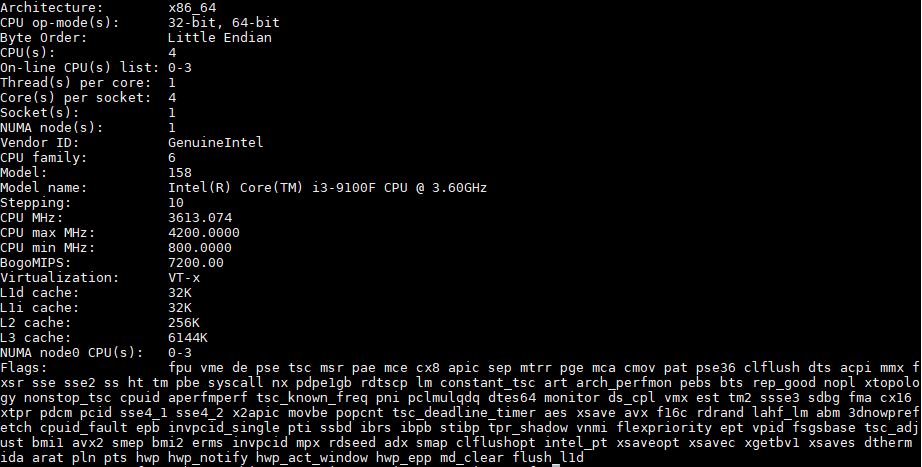
There are a few caveats we wanted to talk about. The Intel Xeon E-2224 is the next higher-up the SKU stack part. STH will have a review of that part in our Xeon E series once we are allowed to post our performance results for servers. This review is going live just before that happens so we are using this article to introduce a new series.
Unlike the Intel Xeon E-2200 series, the Core i3-9100F is a more constrained part. Here is the ARK comparison with the i3-9100F and E-2224. We cannot publish benchmarks yet, even though the Xeon E-2224 is released, but we can point to differences in specs that are public. One can see the Intel Core i3-9100F has less cache (6MB v. 8MB) and clock speeds are fairly similar. The Core i3-9100F only supports DDR4-2400 and up to 64GB of ECC UDIMMs versus DDR4-2666 and 128GB for the Xeon. For context, earlier in the week we published this review we also published our AMD EPYC 7642 Review where the $4400 chip can handle up to 4TB of DDR4-3200 ECC RDIMMs. DDR4-2400 is about 75% of the top-end server speeds today.
The Core i3-9100F also lacks vPro support, TSX-NI, and Trusted Execution Technology. Overall, there are certain features that would make one purchase a Xeon, but we think a lot of our users are better off with a Core i3-9100F, especially for those who want to build something like a FreeNAS or Unraid box on the platform. In the remainder of this review, we are going to show you why.
Test Configuration
Here is our basic configuration for this class of CPU:
- Motherboard: Supemicro X11SCA-F
- CPU: Intel Core i3-9100F
- RAM: 4x 8GB DDR4-2666 ECC UDIMMs (DDR4-2400 speeds for the Core i3)
- SSD: Intel DC S3710 400GB
- SATADOM: Supermicro 32GB SATADOM
The CPU itself supports up to 64GB of RAM, in a 4x 16GB configuration, today. We see these platforms using 32GB or less given cost sensitivities.
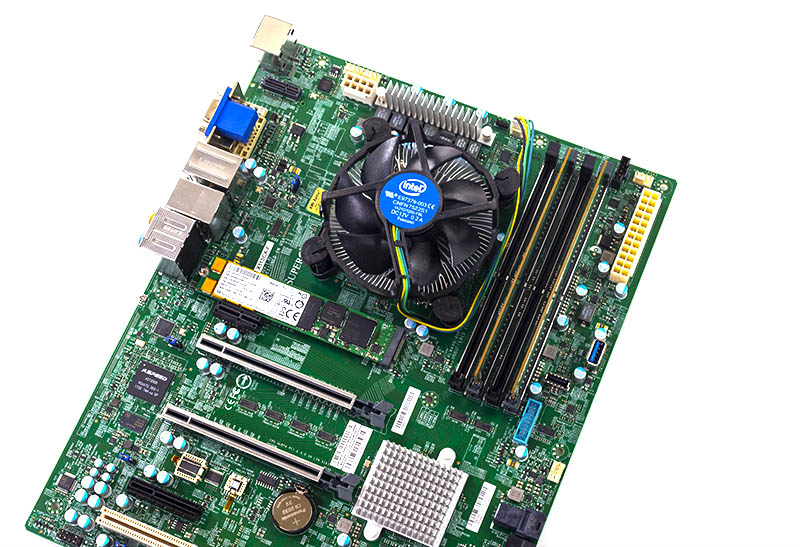
There are going to be folks who want to point to AMD alternatives. As of this writing, there are really no alternatives in this space because while AMD may have competitive CPU parts, vendors have a vibrant Intel Xeon E-2100/ E-2200/ Core i3 ecosystem while AMD has a one off-board or two. AMD needs to do some work here to catch up, but it is not a focus market for them. Single socket servers in this segment are a relatively low volume area.
Next, we are going to take a look at our Intel Core i3-9100F benchmarks, we are then going to focus on power consumption then conclude with our final words on the processors.

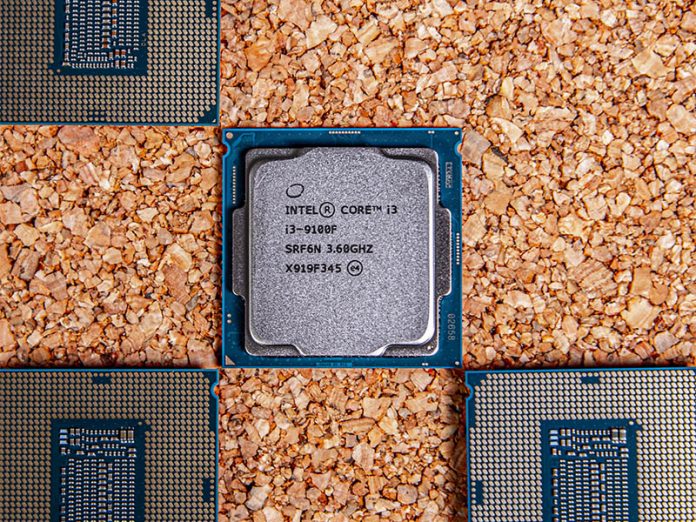
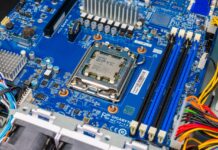

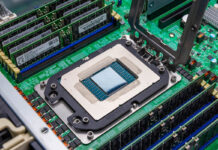
This is nice CPU but the problem I see here is that it is still renamed Kaby Lake B0 silion, therefore all the vulnerabilities like meltdown, spectre etc. apply to those CPUs. They apply to E-2224 as well unfortunatelly. The only fully fixed silicon is R0 stepping that is present only in E-2278G, E-2278GEL and E-2288G. I would love to buy i3 9300T but without security fixes, it is no go for me.
@Petr, agreed. But microcode updates should mitigate those issues?
Does i3 9100 has limited PCIE lanes compare to E2224?